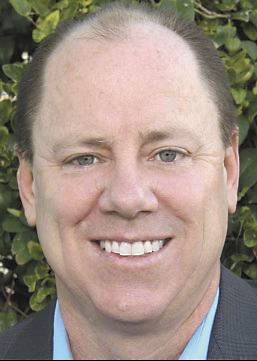
Tom Zumtobel
Monday, June 2, 2014 | 2 a.m.
Sun coverage
Nevada’s health care exchange is in disarray. But in recent weeks, a few signs of progress emerged from the chaos.
The state fired its software contractor, Xerox, and announced Nevadans will enroll for health insurance on the federal exchange when the next enrollment period begins in November.
Tom Zumtobel, CEO of Nevada Health Co-Op, is one of many industry leaders happy to see Xerox gone.
Despite 1,500 glitches in the software, Zumtobel’s nonprofit enrolled 15,000 Nevadans on the exchange — the same number signed up in Nevada by insurance giant United Healthcare.
The co-op is one of 23 nationally and started thanks to a $65 million grant tied to the Affordable Care Act. Supporters see nonprofits as a key to solving the country’s health care challenges. Others see co-ops as just for hippies. Here’s how Zumtobel sees it. His answers have been edited for brevity.
Did the Silver State Exchange board make the right move in ousting Xerox? If so, why?
Absolutely. There had just been no marked improvement since it started early in October. We struggled though that enrollment period. There was no indication it was going to get any better.
What was the worst problem you experienced during Xerox’s tenure?
The inaccurate or incomplete representation of the consumers’ shopping experience. We had people who thought they did everything they could do, even in paying. It was just terrible for the consumer experience.
How will the co-op transition from using the Xerox infrastructure to the federal infrastructure for the next enrollment period?
Xerox is going to have to be involved for a while. There is a lot of data and information they have in their system that’s going to be necessary in the next stage. With healthcare.gov, we hear good things about the shopping experience. It’s simplified and accelerated. You won’t have to go through the hoops you had to go through with the Nevada system. (But) it’s going to be an expensive and an additional burden.
Can Nevada make those transitions fast enough to meet the November start date?
The big part of the burden will be on the part of the carriers to be on the system. National carriers have a big advantage because they are already interfaced in other states that use the federally facilitated exchange. We and St. Mary’s are local. We will have to build it from scratch, but we will be able to get it done.
When people hear co-op they think organic grocery store in Brooklyn or San Francisco. What’s the difference between a health co-op and regular insurance provider?
I hope the biggest advantage is member engagement. Health care is complicated. We have to give the tools to the members to make them feel it’s worthwhile to be engaged. We are more like a credit union is to a bank.
How many people has the co-op signed up?
We’re right at 15,000 members, and we have 37 percent of the market share. With four carriers (in the exchange), it’s a great market share for a startup organization.
What don’t people know about the co-op?
I want people to know that we manage the cost of health care through advocacy, which is a different model than managed care has embraced historically.
What’s the biggest financial challenge of the co-op?
The biggest challenge is marketing dollars. We don’t have a marketing budget like insurance companies would allocate.

Join the Discussion:
Check this out for a full explanation of our conversion to the LiveFyre commenting system and instructions on how to sign up for an account.
Full comments policy